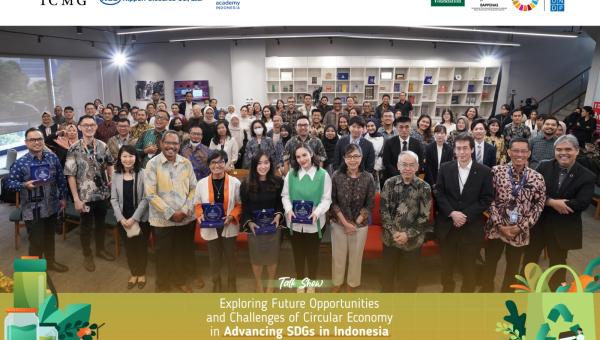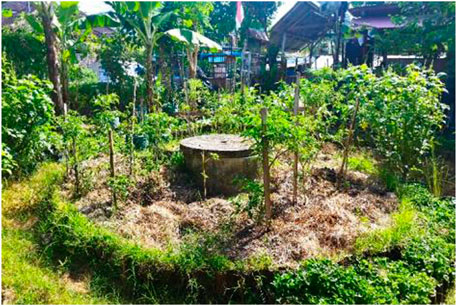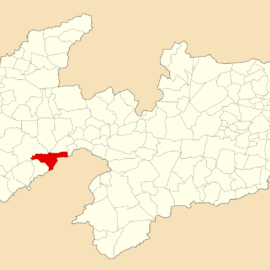In an era marked by climate change and the urgent need for sustainable development, Indonesia stands at a pivotal crossroads with its energy policies. The nation, rich in natural resources, is increasingly recognizing the importance of transitioning from fossil fuels to renewable energy sources. At the forefront of this transition is the Sustainable Development Goals (SDG) initiative, which aims to promote social and economic development while ensuring environmental sustainability. This article will explore how the SDG2030 Indonesia platform is actively advancing renewable energy initiatives across the archipelago, fostering innovation, collaboration, and commitment among various stakeholders. Posted by https://sdg2030indonesia.org/
Understanding Indonesia’s Energy Landscape

Indonesia’s energy landscape is characterized by a heavy reliance on fossil fuels, particularly coal, oil, and natural gas. This dependency poses several challenges, including environmental degradation, greenhouse gas emissions, and energy security concerns. However, the government has set ambitious targets to increase the share of renewable energy in its energy mix, aiming for a significant reduction in carbon emissions by 2030.
As part of this transformation, understanding the dynamics of Indonesia’s energy sector is crucial. The transition to renewable energy not only addresses climate change but also supports economic growth and job creation.
The Role of Government Policies
Government policies play a critical role in shaping the future of renewable energy in Indonesia. The government has introduced several initiatives to encourage investments in renewable energy projects, including solar, wind, biomass, and hydroelectric power.
To facilitate these changes, specific regulations and incentives have been established. For instance, feed-in tariffs are designed to guarantee fixed payments to renewable energy producers, thus enhancing the attractiveness of such investments. Moreover, the government’s commitment to achieving the Paris Agreement’s goals signals a robust willingness to embrace sustainable practices.
These progressive measures foster an environment conducive to innovation and collaboration between public and private sectors. The synergy between government-led initiatives and grassroots movements is vital in driving substantial progress in renewable energy production and consumption.
Engaging Local Communities
Local communities are integral to the success of renewable energy projects in Indonesia. Ensuring that these communities are engaged and empowered can lead to more effective implementation and acceptance of renewable energy initiatives.
Community involvement often manifests through local cooperative models, where residents actively participate in ownership and management of clean energy projects. These cooperatives not only provide financial benefits but also enhance community resilience and awareness about sustainability.
Moreover, education plays a crucial role in fostering a culture of sustainability within these communities. Training programs focused on renewable energy technologies can equip locals with the necessary skills to contribute to the sector, creating a workforce ready to embrace future opportunities.
SDG2030 Indonesia: A Catalyst for Change

SDG2030 Indonesia is a collaborative platform that aligns efforts towards achieving the United Nations’ Sustainable Development Goals. By promoting partnerships among government institutions, non-governmental organizations (NGOs), and the private sector, this initiative serves as a catalyst for advancing renewable energy adoption throughout Indonesia.
Building Partnerships for Sustainable Development
The essence of SDG2030 Indonesia lies in its ability to forge meaningful partnerships. Through collective action, stakeholders can pool resources, knowledge, and expertise to overcome common challenges and drive sustainable development initiatives.
Effective collaboration among diverse entities allows for innovative solutions tailored to local contexts. For instance, partnerships between universities and research institutions can catalyze technological advancements in renewable energy systems, while collaborations with international organizations may provide funding and technical assistance.
Furthermore, involving communities in decision-making processes ensures that local needs and perspectives are respected, resulting in projects that are both contextually relevant and socially equitable.
Promoting Knowledge Sharing and Capacity Building
One of the key functions of SDG2030 Indonesia is to facilitate knowledge sharing and capacity building among stakeholders. By organizing workshops, seminars, and training sessions, the platform creates opportunities for learning and exchange of ideas.
Such interactions enable local governments, businesses, and civil society organizations to stay informed about the latest developments in renewable energy technologies and policy frameworks. They also foster a culture of innovation and continuous improvement, essential for navigating the complexities of the energy transition.
Additionally, knowledge sharing helps to break down silos within the energy sector. When stakeholders are aware of each other’s capabilities and experiences, it opens doors for collaborative projects and synergies that can amplify the impact of their initiatives.
Advocating for Policy Reform
Advocacy is a cornerstone of SDG2030 Indonesia’s approach to promoting renewable energy. The platform actively engages with policymakers to push for reforms that support sustainable energy practices.
Through evidence-based advocacy, stakeholders can influence legislative agendas and secure commitments to renewable energy targets. Raising awareness about the socio-economic benefits of transitioning to renewable sources further strengthens the case for policy reform.
Moreover, engaging in dialogues with policymakers provides an avenue for stakeholders to voice their concerns and recommendations. This participatory approach fosters transparency and accountability in the decision-making process, ultimately leading to more robust and inclusive energy policies.
Innovations in Renewable Energy Technologies

As Indonesia embarks on its journey toward a sustainable energy future, innovations in renewable energy technologies play a fundamental role. These technological advancements not only enhance the efficiency of energy production but also reduce costs and broaden access to renewable energy.
Harnessing Solar Power Potential
Solar power is one of the most promising renewable energy sources in Indonesia due to its geographic advantage. With abundant sunlight throughout the year, solar energy offers immense potential for widespread adoption.
Recent innovations in solar technologies, such as photovoltaic (PV) panels and solar thermal systems, have made it possible to harness this energy in diverse settings, from residential rooftops to large-scale solar farms.
Moreover, the decreasing cost of solar technology makes it increasingly accessible, especially for rural communities where electricity access remains limited. Community-based solar projects empower locals to generate clean energy, reducing dependence on fossil fuels and contributing to energy independence.
Exploring Wind Energy Opportunities
Wind energy is another vital component of Indonesia’s renewable energy landscape. The country features several regions with considerable wind potential, particularly in coastal areas and islands.
Innovations in wind turbine design and performance are crucial for maximizing energy generation in these locations. Enhanced turbine efficiency enables the capture of wind energy even at lower wind speeds, making it feasible to establish wind farms in more regions.
Investment in offshore wind projects also holds promise, given Indonesia’s extensive coastlines. As technology continues to evolve, the potential for harnessing wind energy can significantly contribute to the country’s renewable energy targets while fostering job creation in related industries.
Leveraging Biomass and Geothermal Resources
Indonesia boasts abundant biomass and geothermal resources that can be harnessed for energy production. Biomass, derived from agricultural residues and waste, provides a sustainable way to generate energy while addressing waste management challenges.
Recent innovations in biomass conversion technologies enhance the efficiency of energy extraction from organic materials. Implementing biogas systems and bioenergy solutions can contribute to local energy supply while reducing greenhouse gas emissions.
Geothermal energy, on the other hand, positions Indonesia among the world’s top countries for geothermal potential. Continued exploration and investment in geothermal power plants can unlock a reliable and sustainable source of energy that contributes to the nation’s energy security.
Overcoming Challenges in the Transition to Renewable Energy

While the transition to renewable energy presents numerous opportunities, it is not without its challenges. Addressing these obstacles requires comprehensive strategies and collaborative efforts from all stakeholders involved.
Infrastructure Development Needs
One of the most pressing challenges facing Indonesia’s renewable energy ambitions is the need for infrastructure development. Upgrading transmission networks and establishing distribution systems capable of accommodating decentralized renewable energy sources is essential for ensuring efficient energy delivery.
Investments in smart grid technologies can facilitate better integration of renewables into the existing energy system, allowing for real-time monitoring and management of energy flows. Such advancements can enhance reliability and reduce transmission losses, ultimately benefiting consumers and producers alike.
Financial Barriers and Investment Risk
Financial barriers often hinder the scalability of renewable energy projects in Indonesia. Access to capital, especially for small and medium-sized enterprises (SMEs) and community-based initiatives, remains a significant challenge.
Developing innovative financing mechanisms, such as green bonds or blended finance models, can attract investment while mitigating risks associated with renewable energy projects. Public-private partnerships can also play a crucial role in mobilizing resources and expertise needed to implement large-scale renewable energy initiatives.
Additionally, providing clear regulatory frameworks and stable policy environments can enhance investor confidence, fostering a more attractive landscape for investors in the renewable energy sector.
Social Acceptance and Awareness
Achieving social acceptance for renewable energy projects is vital for their success. Misinformation or lack of awareness about the benefits of clean energy can lead to resistance from local communities.
Engaging stakeholders and conducting outreach campaigns can help educate the public about the environmental, economic, and health benefits of renewable energy. Furthermore, involving communities in project planning and implementation fosters a sense of ownership and responsibility, increasing public support for clean energy initiatives.
Collaboration with local leaders and influencers can amplify outreach efforts, ensuring that the message resonates within communities. By building trust and fostering dialogue, stakeholders can address concerns and misconceptions, paving the way for successful renewable energy projects.
FAQs

What is SDG2030 Indonesia?
SDG2030 Indonesia is a collaborative platform that promotes partnerships among various stakeholders to achieve the United Nations’ Sustainable Development Goals, with a focus on advancing renewable energy initiatives in Indonesia.
How does SDG2030 Indonesia support renewable energy?
The platform supports renewable energy by building partnerships, facilitating knowledge sharing, advocating for policy reform, and engaging local communities in sustainable development efforts.
What are the main renewable energy sources being promoted in Indonesia?
The main renewable energy sources being promoted in Indonesia include solar, wind, biomass, and geothermal energy, leveraging the country’s abundant natural resources.
What challenges does Indonesia face in transitioning to renewable energy?
Challenges include infrastructure development needs, financial barriers, investment risks, and social acceptance issues that must be addressed for successful implementation of renewable energy projects.
How can individuals contribute to advancing renewable energy in Indonesia?
Individuals can contribute by raising awareness, supporting community-based renewable energy projects, and advocating for sustainable practices in their local contexts.
Conclusion
The journey toward renewable energy in Indonesia is both challenging and promising. As highlighted throughout this article, the efforts of SDG2030 Indonesia in fostering collaboration, promoting knowledge sharing, and advocating for policy reform are instrumental in driving the transition to sustainable energy sources. By harnessing the potential of local communities and emphasizing innovation, Indonesia can pave the way for a cleaner and more resilient energy future. As global citizens, it is imperative to remain engaged and supportive of these initiatives, as they hold the key to addressing the pressing challenges of climate change and ensuring a sustainable world for generations to come.


